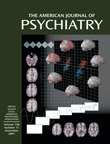Does Social Support Buffer Functional Decline in Elderly Patients With Unipolar Depression?
Abstract
OBJECTIVE: This study tested whether social support protects against functional decline, either generally or selectively, in the most severely depressed elderly patients undergoing treatment for major depressive disorder. METHOD: In a prospective cohort study design, 113 patients with incident and prevalent unipolar depression were followed for 12 months while they were undergoing naturalistic treatment. Outcome measures included performance on basic and instrumental activities of daily living; predictor variables included Hamilton Depression Rating Scale scores and four domains of informal social support. The analysis employed multivariable ordinary least squares regression models. RESULTS: Improved scores on instrumental activities of daily living and stable scores on basic activities of daily living characterized the subjects. In adjusted analyses, instrumental social support provided marginal protection against worsening performance on instrumental activities of daily living, which were primarily a function of baseline depression severity. Large social networks, more frequent social interaction, and the perceived adequacy of social support played a modest buffering role against declines in performance on basic activities of daily living among the most depressed elderly patients. CONCLUSIONS: Instrumental support was generally protective against worsening performance on instrumental abilities of daily living among elderly patients with recurrent unipolar depression. Subjective and structural dimensions of social support protected the most severely depressed elderly patients against the loss of basic maintenance abilities.



